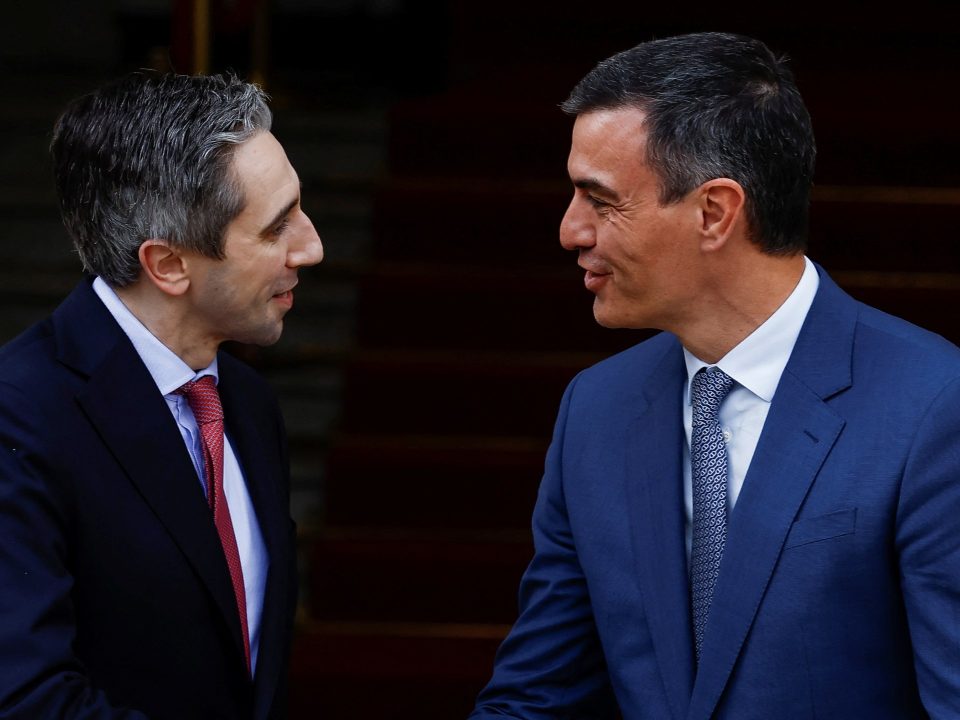As the genocide in Gaza rages, various European countries, including Spain and Ireland, have indicated they are moving towards recognizing the state of Palestine.
New Irish Prime Minister Simon Harris argued that a group of like-minded countries officially recognizing a Palestinian state would “give weight to the decision and … send the strongest message”.
Meanwhile, Spanish officials said it could create an impetus for others to do the same. Currently, most countries in the Global South, but very few countries in the West, recognize the State of Palestine. Currently, the recognition of the State of Palestine is a political and symbolic step – it signals recognition of the Palestinian right to sovereignty over the West Bank and Gaza. In reality, there is no such sovereignty – rather, as an occupying force, the Israeli regime maintains de facto control over both territories, effectively controlling everything that goes in and out, including people.
In recent times, some steps have also been taken to grant Palestine full membership in the UN, thereby recognizing its statehood at the UN level. In mid-April, a resolution was tabled in the UN Security Council that would pave the way for full Palestinian membership. Twelve members of the UNSC voted in favor, but unsurprisingly the United States blocked the initiative with its veto power. Rather, it could be assumed that the United Kingdom and Switzerland abstained from voting. Before the vote, the Biden administration offered Palestinian President Mahmoud Abbas a meeting at the White House in exchange for suspending the offer. Abbas declined, probably still stinging from last year when he reportedly accepted a similar offer and never received an invitation to the White House. In fact, it has happened many times before that the Palestinian Authority has suspended activities at the United Nations at the behest of the Americans in exchange for little or no reward.
Some Palestinians and international human rights organizations say the recognition is a crucial step in securing Palestinian fundamental rights and one that offers more legal avenues to hold the Israeli regime accountable. Still, it's hard to imagine how recognizing a state that doesn't exist would change the reality on the ground for Palestinians who face systematic erasure.
In fact, it is fair to ask whether some states are pursuing this symbolic political step in the midst of ongoing genocide to avoid much more tangible actions, such as arms/trade embargoes and sanctions against the Israeli regime, to support the Palestinians and reaffirm their right. to sovereignty.
For example, Spain – one of the leading voices calling for recognition – in November exported $1 million worth of ammunition to the Israeli regime, which by then had already killed thousands of people in Gaza. Meanwhile, Ireland's exports of restricted “dual-use” goods, which have potential military uses, rose almost sevenfold in 2023, from €11 million ($11.8 million) to more than €70 million ($75 million). Despite growing calls for an end to all commercial relations between Ireland and the Israeli regime, these exports continue to this day. This begs the question; What does it mean to recognize a people's statehood when you remain complicit in financing, arming and equipping a regime that destroys the very people of that state?
But for most diplomats and foreign officials, the crux of the argument for recognition is that it will revive the “two-state solution” amid what has been described as a political impasse. A solution that, based on dividing the land of historic Palestine, does not recognize Palestinian fundamental rights in their entirety and effectively accepts Israeli apartheid. Indeed, the two-state solution requires Palestinians around the world to relinquish their rights to their land and property in historic Palestine and instead accept a truncated state in the territories occupied in 1967. It further requires Palestinians to accept Zionism as a legitimate ideology rather than an ideology settler colonial rule.
Today, in addition to the Gaza genocide, in which Israeli forces killed more than 34,000 Palestinians and destroyed 70 percent of the enclave's infrastructure, the West Bank faces unprecedented land theft, settlement building, house destruction, and violence by both soldiers and settlers. Rather, this reality is the predictable result of decades of promoting a flawed solution framework that favors a colonial division of justice and freedom.
This is why what the Palestinians need at this time from the international community is not token recognition of a non-existent state, but tangible action, including trade embargoes and sanctions against the Israeli regime to hold it accountable for its ongoing crimes in colonized Palestine.
As the genocide rages, Gaza continues to teach the world many things, not least of which is that the Palestinian people cannot be “sucked into the Bantustans” and forgotten. Indeed, partition will never be a sustainable or long-term solution, and the international community must come to terms with that.
The views expressed in this article are the author's own and do not necessarily reflect the editorial position of Al Jazeera.

